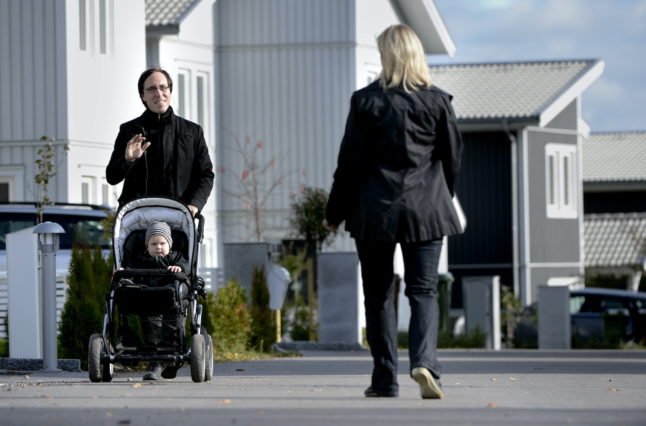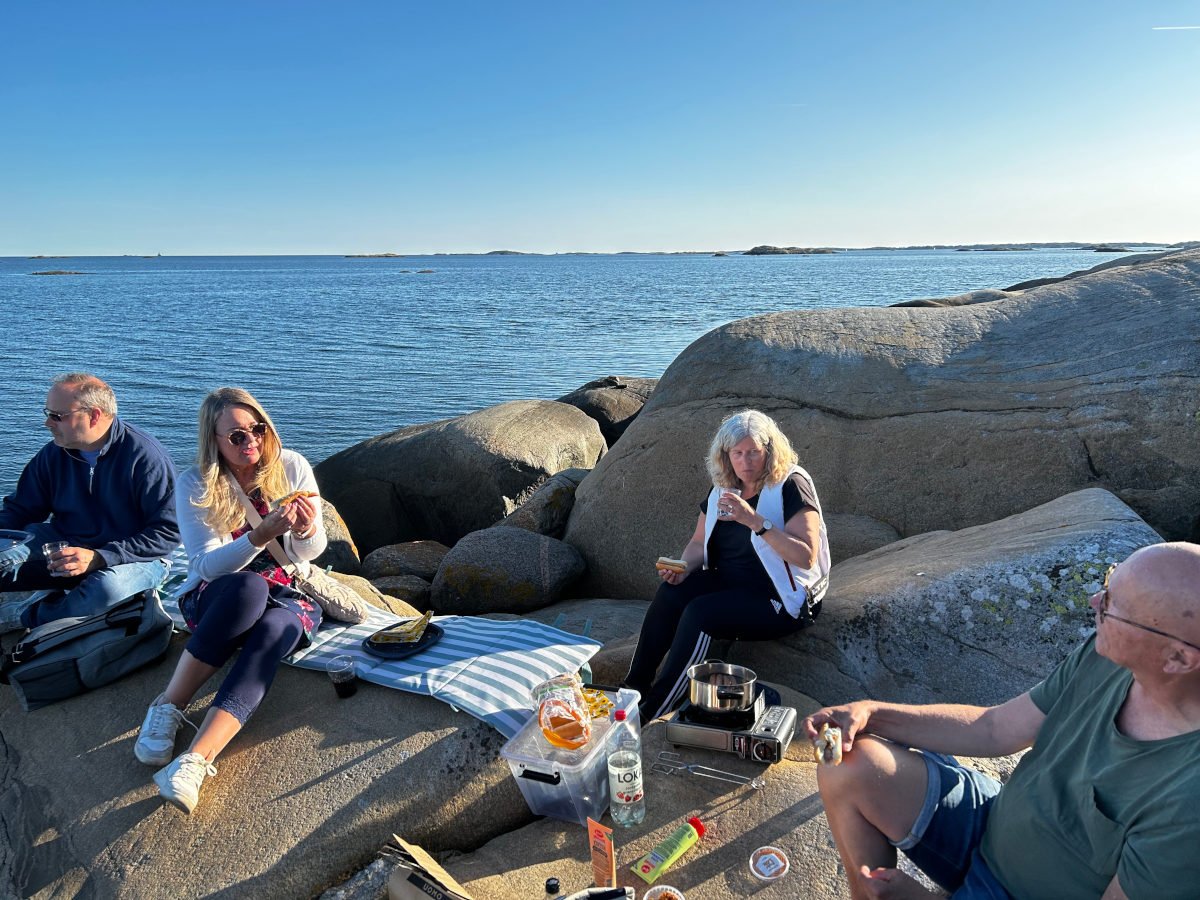Who would have thought that saying ‘hi’ could be complicated? Swedes, however, are famously reserved, and will do anything to avoid mumbling an awkward hej hej to a neighbour in the stairwell.
A recent campaign by northern Swedish city Luleå, first reported by The Local, has been covered by newspapers across the world. The campaign aims to combat this social awkwardness by getting its residents to say ‘hi’ (hej or more often hej hej in Swedish) to each other in order to fight isolation and loneliness.
It’s a nice idea, sure, but how are Swedes really going to react if you start saying hej to everyone you meet?
Well, it depends on the situation: here are some general guidelines.
READ ALSO: When can you talk to a stranger in Sweden without annoying them?
Are you in a small town or a big city?
If you’re in a small town, on a remote walking path or deep in the Swedish forest, you should definitely greet anyone you meet, although a quick ‘hej hej’ is probably enough. No need to start making small talk about the weather.
Sometimes it can be difficult to know where to draw the greet/don’t greet line here, but if you’re engaging in some sort of leisure activity, like going for a walk or foraging in the forests, you should say ‘hi’ — unless, that is, there is such a high flow of people that you’d be saying ‘hi’ more than once every five minutes.
It’s also a good idea to say ‘hi’ to people you walk past if you’re in a town small enough for you to be easily identified as an outsider, in order to dispel any suspicions that you’re up to no good.
If you’re in a larger town, or any other sort of area where you’re likely to be walking past other human beings with any sort of regularity, you’re probably alright just giving a slight smile and nod if you end up making eye contact.
If someone says ‘hi’ to you, though, you should always say ‘hi’ back.
Will you be forced to continue chatting?
Swedes hate small talk, so any kind of situation where you could find yourself trapped in further conversation with someone after you’ve said hej should be avoided. If you’re walking past each other on a walking trail, say hej.
But if you’re getting on to a crowded train or bus together, either don’t say hej, or make sure you have an exit strategy, such as sitting in a different carriage or a different part of the bus, so you’re not forced to continue chatting afterwards.
This is one of the reasons Swedes try and avoid saying hej to neighbours in the stairwell – no one wants to risk being stuck in a situation where you’re following your neighbour down the stairs, out the door and to the bus stop in awkward silence.
Are they busy?
Generally, Swedes – as with most people, to be honest – are more likely to say hej when they’re not busy or thinking about something else at the same time. They may stop to say hej on a weekend shopping trip or when out walking their dog, but ignore you by pretending to stare at their phone if they’re rushing to school or preschool pickup.
You might, for example, be expected to say hej to a pensioner taking a break on a bench as you walk past, but probably wouldn’t say hej to someone rushing around the supermarket buying ingredients for dinner after work.
Is it some sort of public holiday?
Similar to the point above, if it’s some sort of public holiday, like Easter, Christmas or Midsummer, and you happen to be out for a walk anywhere other than in a busy city or town centre, you should say hej to anyone you walk past, as well as the appropriate seasonal greeting for the holiday in question.
This is presumably due in part to the fact that Swedes have a very clear boundary between work and private life, therefore assuming that everyone is off work over the holidays and isn’t too busy to say hello.
Do you have a shared activity in common?
If you are going to be in the same place for more than a couple of minutes – you’re walking your dog at the same dog park, or your children are playing at the same playground, for example – then you should greet anyone else your path crosses with, if only to acknowledge their existence.
It’s probably overkill to actually go up to someone for the purpose of saying ‘hello’, but a quick greeting if you happen to be within speaking distance would be fine.
This also applies to things like gym classes or activities with some other sort of club or association, but not if you’re just waiting at the same bus stop.
Do you know this person (even vaguely)?
As a general rule, if you know someone even vaguely, you should greet them, although again, there are exceptions.
Usually, if you’re likely to see them again at some point in some other context, you should say hej. This could include a neighbour, a colleague, or a parent who often drops off or picks up their child from school or preschool at the same time as you.
One exception to this is if you see someone you used to know at some point who you haven’t seen in a while, like someone you went to school with or a former colleague.
This situation can be awkward as if you say hej, you almost have to start a longer conversation with them, which can be annoying if you or they are actually on their way to somewhere else.
You really have two options here: you can either choose to greet them if you think they have time to chat, or you can try and walk past without them spotting you if either of you are in a hurry.
What happens if I get it wrong?
If you don’t greet someone when you should have, no one will actually tell you directly, but they might complain behind your back to someone else that you were a bit rude.
If, on the other hand, you greet people too often and force them to have painful small talk with you, they might complain that you are lite väl mycket (a bit too much), although again they’d never do it directly to your face.
Let’s be honest, though, most people will just say hej back.





 Please whitelist us to continue reading.
Please whitelist us to continue reading.
This explanation of not wanting small talk helps a lot. I take the ferry in Gothenburg a lot, and nearly everyday, I see someone I taught, work with (same team even!), in my friend group, etc… 9 times out of 10, I am ignored. For that 1 time out of 10, i keep it in English, for some reason that has helped. Is small talk easier in English?